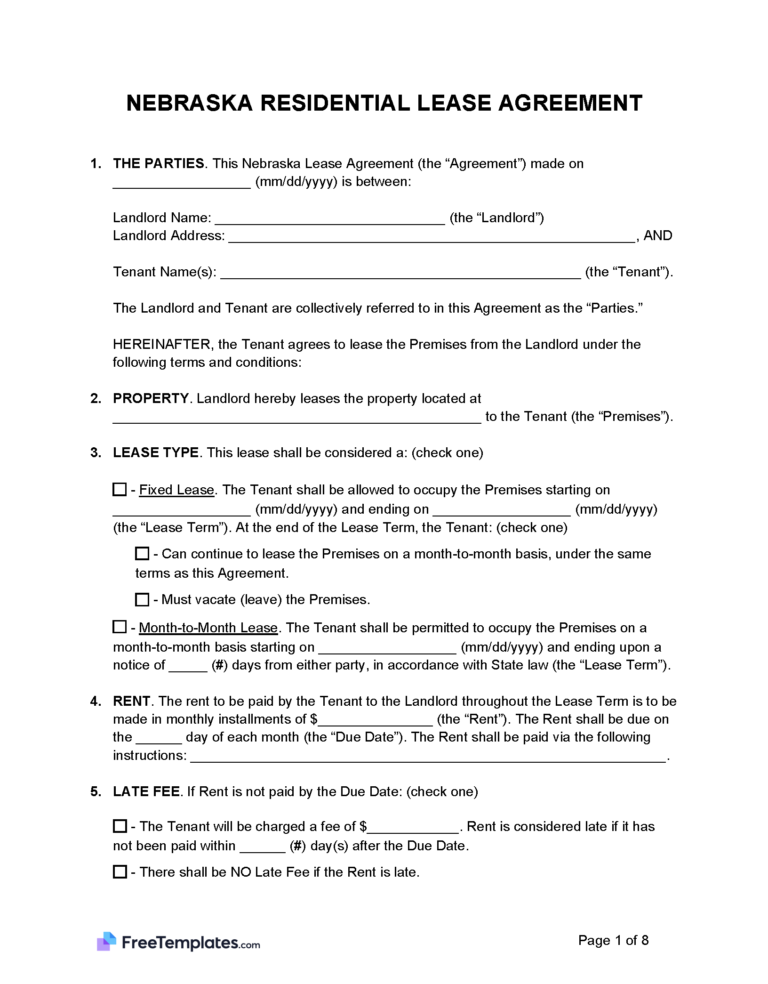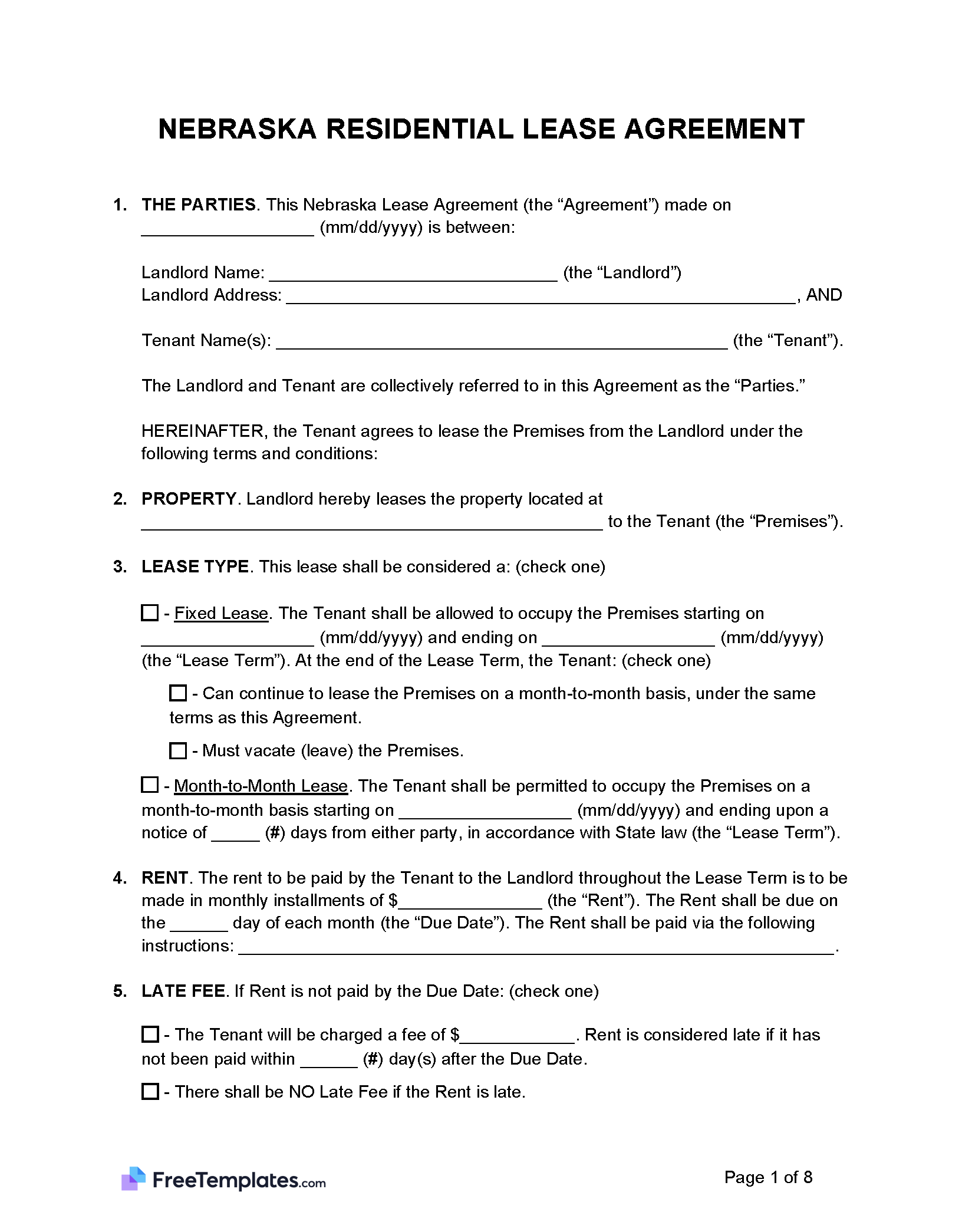By Type (6)
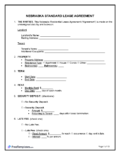 Standard Lease Agreement – An agreement between a renter and a landlord that outlines each party’s duties and responsibilities. Standard Lease Agreement – An agreement between a renter and a landlord that outlines each party’s duties and responsibilities.
|
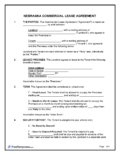 Commercial Lease Agreement – This is a contract for a commercial property that a business will use to rent for a certain duration and at a specific price. Commercial Lease Agreement – This is a contract for a commercial property that a business will use to rent for a certain duration and at a specific price.
|
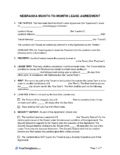 Month-to-Month Lease Agreement – The renter or landlord can void this contract with a 30-day notice. Month-to-Month Lease Agreement – The renter or landlord can void this contract with a 30-day notice.
|
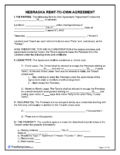 Rent-to-Own Agreement – A contract under which the renter can purchase the property they rent from the landlord. Rent-to-Own Agreement – A contract under which the renter can purchase the property they rent from the landlord.
|
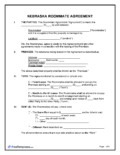 Roommate Agreement – An arrangement where two or more renters can legally define the rules of sharing a property. Roommate Agreement – An arrangement where two or more renters can legally define the rules of sharing a property.
|
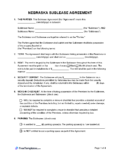 Sublease Agreement – This agreement is for someone looking to sublet the space they are currently renting, but only with the landlord’s approval. Sublease Agreement – This agreement is for someone looking to sublet the space they are currently renting, but only with the landlord’s approval.
|
Disclosures (2)
Lead-Based Paint Disclosure – Federal law states that a lead-based paint disclosure must be given to any renter if the building was built before 1978. (EPA/HUD Fact Sheet)
Landlord’s Contact Details – The landlord must disclose their contact information and anyone permitted to enter the premises. (§ 76-1417(1))
Security Deposit
Maximum Amount – The maximum amount that a landlord may charge for a security deposit is one month’s rent. (§ 76-1416(1))
Returning to Tenant – The landlord is responsible for returning the security deposit to the renter within 14 days of the lease’s end. (§ 76-1416(2))
- Itemized List – If the security deposit has been deducted for any reason, the landlord must provide a detailed list of all damages done within 14 days. (§ 76-1416(2))
Collecting Interest – There are no laws regarding what the landlord is to do with the interest earned on the security deposit.
Pet Deposit – The maximum amount a pet owner may be charged is one-quarter month’s rent. (§ 76-1416(1))
Landlord Access
General Access – Nebraska’s law requires a 24-hour notice to the renters before the landlord may enter the property. (§ 76-1423(3)(a))
Emergency Access – If there is an emergency at the property, the landlord can enter the leased space. (§ 76-1423(3))
Paying Rent
Grace Period – In Nebraska, there is no grace period for late rent payments. The rent is due on the date agreed to in the original agreement. (§ 76-1414(3))
Maximum Late Fee – There is no specific maximum amount a tenant may be charged for paying rent late.
Returned Checks (NSF) – Writing a bad rent check in Nebraska may result in a $10 fee. (§ 28-661(7))
Withholding Rent – If a tenant does not receive essential utilities after notifying the landlord, the tenant may remedy the situation and withhold the cost to fix it from the due rent. (§ 76-1427(1)(a))
Reasons for Eviction (4)
Leaving Before the End Date – A tenant who vacates their rental is still responsible for paying rent until the end of the lease agreement. If the property sits vacant, the landlord shall attempt to re-rent it. (§ 76-1432(3))
Lockouts – Locking out a tenant is strictly prohibited without a court order. If the landlord does so without the court’s permission, they may face a three-month rent penalty. (§ 76-1430)
Non-Compliance – If the tenant is not complying with the contract, they may be given a 30-day notice to quit and 14 days to comply. (§ 76-1431(1))
Non-Payment of Rent – If the tenant fails to pay the rent, they may be given a 7-day notice to quit or pay. (§ 76-1431(2))
